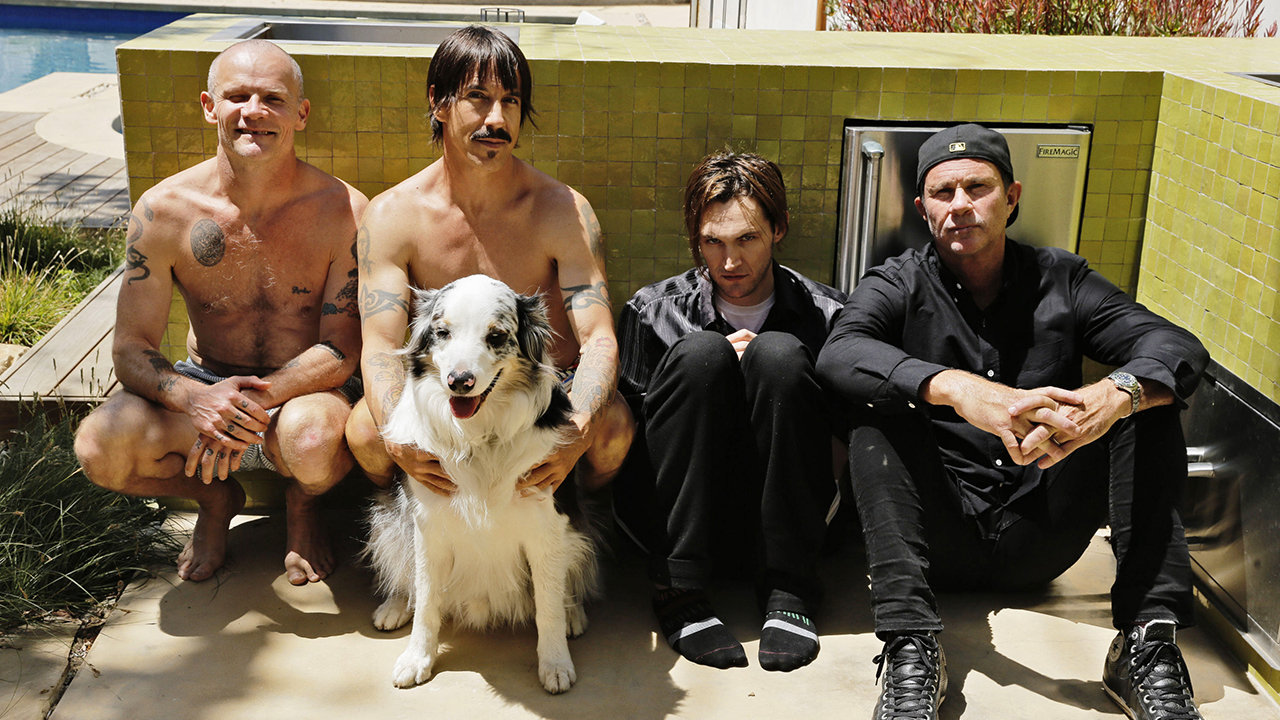You can trust Louder
Produced by Danger Mouse, who first came to prominence mashing up Jay Z and The Beatles on The Grey Album, The Getaway is lyrically inspired by that rock staple: a relationship gone bad. Yet it also feels like a meditation of the passing of time, the accruing of history.
The Chilis are a long-lived band who probably never particularly thought about making it this far and The Getaway sees them survey a range of styles from decades past, like a drowning man whose life flashes slowly before him. ‘Taking acid in a graveyard’, Anthony Kiedis intones on closer Dreams Of A Samurai. Fortunately, thanks to the band’s own accumulated expertise and the masterly stitching qualities of Danger Mouse, it’s a tightly woven affair, never messy or maudlin or self-indulgent; a dreamcoat of many colours, a marble rye of genres.
The opening title track shows that Flea’s broken arm, which delayed the recording of this album, is fully recovered. His bass underwrites the band’s intentions from the get-go. Reminiscent of late-70s/early-80s avant white funk, reminiscent of François Kevorkian and Material, it sets a standard from which the band only fitfully lapse during this album. Dark Necessities (‘part of my design’) sees the Chili Peppers scratch an itch they haven’t touched since the late-80s days of The Uplift Mofo Party Plan, bringing in fast piano, slap bass and clipped wah-wah. We Turn Red changes colour at will, from desert hues to thick, bloody riffing, while things become slow and turquoise with the oceanic yearning of The Longest Wave.
Goodbye Angels sheds ‘black lights’ on the doomed subject of the lyric, conveying a touch of sleaze with a palpable, physically adhesive guitar approach, as if literally played with sticky fingers. Go Robot is a delight, a silvery pastiche of late-70s disco and Duran Duran-style new-romantic pop, while Feasting On The Flowers reminds of something antithetical – Badfinger, maybe. The Chili Peppers switch seamlessly from style to style, often in mid-song, notably on the segmented This Ticonderoga.
Detroit revisits the town as it is today, a contemporary ruin made up of ‘yesterday’s remains’ over a bleak, astringent riff reminiscent of Led Zep’s Immigrant Song. Finally, Encore and The Hunter are dominated by Josh Klinghoffer’s glittering, reverberant guitars, rolling in like the evening Pacific tide. Kiedis sings gloomily of ‘strawberries left to decay’ on the latter track. The Chilis have been a long time in the bowl themselves, but they’re still sweet.
Sign up below to get the latest from Classic Rock, plus exclusive special offers, direct to your inbox!
David Stubbs is a music, film, TV and football journalist. He has written for The Guardian, NME, The Wire and Uncut, and has written books on Jimi Hendrix, Eminem, Electronic Music and the footballer Charlie Nicholas.


